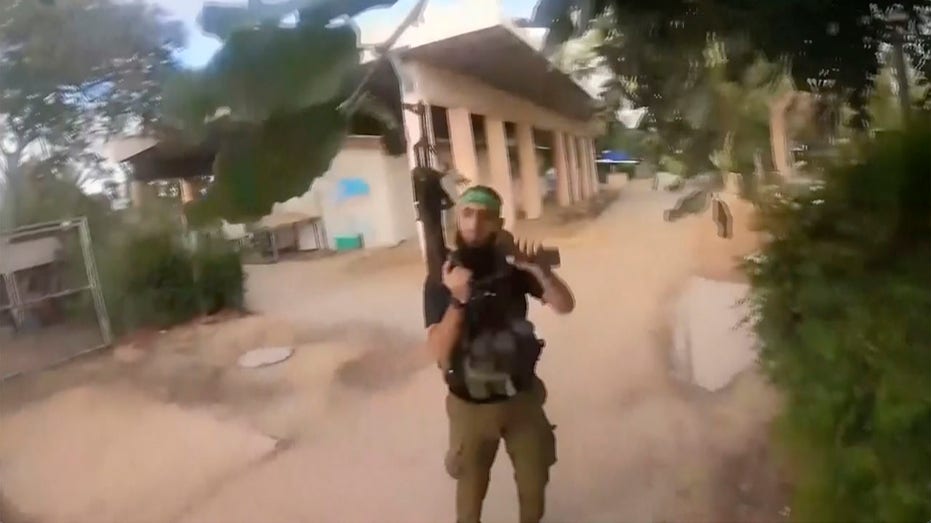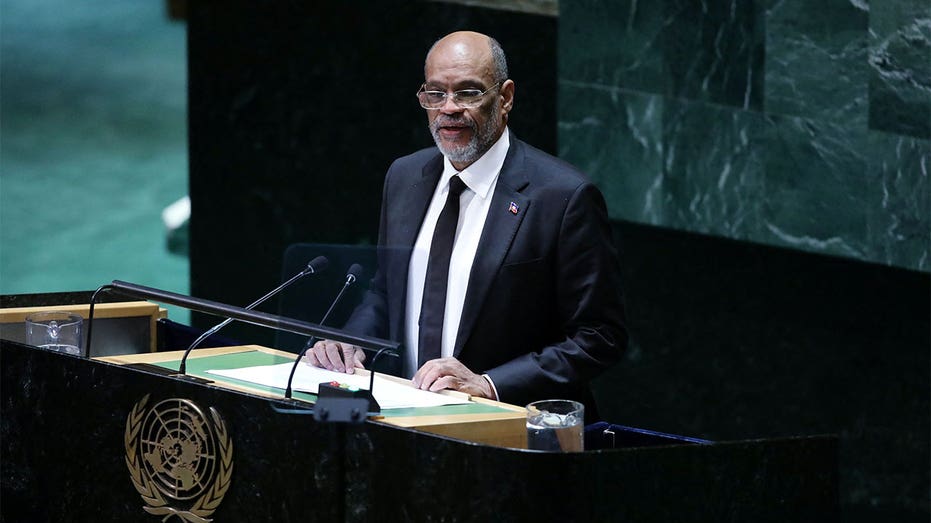FIRST ON FOX — Israeli scholars and international legal experts have determined a new type of war crime that was committed by the Iranian-backed terror group Hamas during its brutal Oct. 7 attacks on southern Israel: “kinocide,” the deliberate weaponization or destruction of families.
Eight months after the attack in which more than 1,200 people were murdered and about 250 taken hostage to the Gaza Strip, researchers are piecing together evidence that the Palestinian terror organization perpetrated horrific crimes specifically terrorizing families on kibbutz and other civilian communities in Israel.
And much of it was captured on film by the terrorists themselves, say those documenting all the evidence.
“We have been building the case of war crimes committed on Oct. 7 and have been exposed to very, very traumatic material, especially against women and children,” Cochav Elkayam Levy, an international law, human rights and gender expert from the Hebrew University in Jerusalem, told Fox News Digital.
UN FINALLY RECOGNIZES THAT ISRAELI WOMEN WERE RAPED, SEXUALLY ATTACKED BY HAMAS TERRORISTS
Elkayam Levy, who was interviewed for the first time on this topic, said that going through all the videos filmed by Hamas using go-pro cameras and cellphones, “[T]he hardest crime to document and witness is to see women and children who are the most vulnerable.”
“The most difficult videos that we have collected in our archives are those of families when terrorists entered their homes, the parents are terrified and the children are screaming,” she said, describing one video clip taken just after the eldest daughter of one of the families has just been murdered by the terrorists and the mother is trying to console her other children by telling them that it did not happen.
“It is truly heartbreaking, and we are seeing only a fraction of what they went through for hours and hours, with some of them then taken hostage,” said Elkayam Levy, who has also been at the forefront of documenting some of the most horrific crimes – including extreme sexual violence – carried out by Hamas on that day.
After reviewing hours of footage, the law professor told Fox News Digital that she realized there are no appropriate definitions in international law that capture this type of human suffering, meaning the perpetrators cannot be tried for systematically targeting families.
“We decided to take it upon ourselves to document the unique harm that was caused to families or the weaponization of families,” Elkayam Levy said, adding that her team has also been researching similar atrocities targeting families from conflicts worldwide.
The targeting of families in wartime is not a new phenomenon. In the genocide carried out during the 1994 civil war in Rwanda, extremist elements of the African country’s majority Hutu population targeted families in the minority Tutsi population. In Bosnia and Herzegovina, also in the mid-1990s, families were specifically attacked, and even during the Holocaust in World War II, the Nazis separated families as they sent Jews to labor and concentration camps.
However, what stands out in the Hamas attack, Elkayam Levy pointed out, is that the thousands of terrorists who infiltrated into Israel on Oct. 7 filmed their actions, not only enhancing the psychological terror of their crimes but also providing researchers, like her – and law enforcers – with clear evidence of their actions.
While many videos from that day were immediately uploaded to social media, with the terrorists even using the victim’s cellphones to broadcast their murders live to relatives, eight months later, new footage continues to surface.
Last week, Israeli news outlet Keshet 12 News broadcast for the first time an emergency call made by Sharon Aloni Cunio, 36, as terrorists set her family’s home on Kibbutz Nir Oz on fire. In the audio, Aloni Cunio can be heard coughing as she tells the dispatcher that her home is on fire and that the terrorists were outside. The smoke, she says, is suffocating. In the background, one of Aloni Cunio’s 3-year-old twins can be heard screaming: “Mommy, don’t die.”
Aloni Cunio, along with her husband, David, their 3-year-old daughters, Emma and Yuli, as well as her sister, Danielle, and her 6-year-old daughter, Amelia, were all kidnapped by Hamas to Gaza.
Sharon, who turned down a Fox News Digital request for an interview, Danielle and the three children were all released in a weeklong cease-fire last November. Meanwhile, David Cunio remains a hostage along with some 120 other people, many of whom are now assumed to be dead.
Elkayam Levy said that this was just one of a string of similar stories where families specifically were violently attacked by the terrorists in their homes and then either murdered or kidnapped.
“You have to understand that family members were murdered in front of one another, parents were murdered in front of their children and children were murdered in front of their parents,” she said, “families were separated, and some remain separated with fathers left behind in captivity.”
“What we are seeing is a new crime against humanity,” Elkayam Levy said, adding, however, that every mass atrocity brings with it a lesson for humanity.
“Kinocide” – a play on the word “kin,” meaning relative, and ‘ocide,’ referring to genocide or intentional destruction of a people in whole or in part – was coined by Elkayam Levy and her team as they worked through all the evidence from Oct. 7 and noticed a systematic “weaponization of the family unit” by Hamas.
STORIES OF TORTURE, TORMENT REVEALED BY ISRAELI CHILDREN KIDNAPPED BY HAMAS TERRORISTS
Now, she has now teamed up with professor Irwin Cotler, the international chair of the Raoul Wallenberg Center for Human Rights, to find a way for this type of war crime to be recognized in international humanitarian law circles.
In an interview, Cotler, a former minister of justice and attorney general of Canada as well as an expert in international law, told Fox News Digital that three possible steps could be taken in order for “kinocide” to become an officially recognized term, not only as it relates to the Hamas attack but also applicable to any such atrocities anywhere.
“Firstly, we need to raise public awareness of the notion itself,” he said, noting that as well as writing about it in the media, he plans to raise the matter with other scholars in international humanitarian law at an annual meeting at the Raoul Wallenberg Center, a Canadian NGO, this summer.
Another step, Cotler said, would be to amend the Rome Statute, the treaty that established the International Criminal Court, who’s chief prosecutor recently announced he would be seeking arrest warrants for both Hamas and Israeli leaders for committing war crimes on Oct. 7 and during the ensuing war.
“To amend the Rome Statute would be difficult,” Cotler said. “However, the statute does contain a reference to ‘other inhumane acts,’ and ‘kinocide’ could be included in there; it would not be a new crime but would be recognized within the framework of existing war crimes.”
Incorporating “kinocide” as other inhumane acts, he said would allow the court to prosecute for war crimes that specifically target the family unit.
Cotler also said it might be possible to get a country with universal jurisdiction law, such as Canada, to “amend its own statute,” setting a precedent in international law for this type of crime.
“Certainly, the public awareness goal can be achieved. The other two will depend on the initiative of a national prosecutorial authority and the international prosecutors authority at the ICC,” he said. “There is a general reluctance to do this, but I still think it’s worth trying to bring this about.”




